


Shavuot in Israel: A Celebration of Torah or First Fruits?
Written By: Hizky Shoham
Dr. Hizky Shoham explores the multiple identities of the holiday of Shavuot, which began as an agricultural festival, was transformed into the "holiday of the giving of the Torah," and is most often commemorated as a celebration of Torah in today's Israel—by secular and observant Jews alike.

My Jerusalem: Thoughts for Jerusalem Day
Written By: Prof. Mordechai Kremnitzer
IDI Vice President Prof. Mordechai Kremnitzer shares thoughts on Jerusalem, which symbolizes what is most beautiful and exalted in Jewish culture: the commitment to law and morality, to justice and mercy.

A Royal Sanctuary: Three Scenes for Jerusalem Day
Rabbi Dr. Benjamin (Benny) Lau presents three snapshots from different times and places, reflecting on a city that combines ancient and modern, sacred and secular, eternal truths and ordinary life.

Force-Feeding Prisoners: A Serious Violation of Human Dignity
Written By: Dr. Amir Fuchs
In an op-ed in <em>Maariv</em>, Attorney Amir Fuchs warns that force feeding hunger striking prisoners is a serious violation of human dignity, and should not be permitted in order to serve public relations efforts of the State of Israel.

The Presidential Elections: The Rules of the Game
Written By: Prof. Ofer Kenig
Who elects the president? What are the candidacy requirements? What majority is needed to win the election and how is it obtained? Dr. Ofer Kenig explains some of the basics.

The Holyland Sentencing and the Fight against Government Corruption
Written By: Prof. Mordechai Kremnitzer
In an op-ed in <em>Haaretz</em> published after Ehud Olmert was sentenced to six years in prison, Prof. Mordechai Kremnitzer explores the implications of the Holyland case for the battle against corruption in Israel.
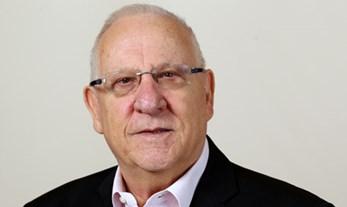
The Presidency: The “Additional Soul” of Israeli Democracy
Written By: Reuven Rivlin
Former Speaker of the Knesset MK Reuven (Ruby) Rivlin shares his views on the importance of the institution of the Israeli presidency, as part of an exclusive IDI series of articles by the presidential candidates of 2014.

The Holyland Sentencing: A Faithful City?
Written By: Prof. Yedidia Z. Stern
In an article in <em>Makor Rishon</em>, Prof. Yedidia Stern describes his feelings of sadness, pride, apprehension, and hope upon the sentencing of Ehud Olmert to prison for his role in the Holyland affair.

A Jewish State Warrants Our Sacrifice
Written By: Prof. Yedidia Z. Stern
IDI Vice President Prof. Yedidia Stern reflects on the privilege of sacrifice and the necessity to maintain a Jewish Israel in order to justify that sacrifice, in an article written for Remembrance Day for the Fallen of Israel's Wars and Victims of Terrorism.

Price Tag Attacks: Racist Crimes
Written By: Dr. Amir Fuchs
In an article in <em>Haaretz</em>, Attorney Amir Fuchs stresses the need to wage a genuine war against racism, in order to preserve the values of Zionism and safeguard the Jewish and democratic state.

Basic Law: Israel as the Nation State of the Jewish People – A Danger to the Zionist Enterprise
Written By: Dr. Amir Fuchs, Prof. Mordechai Kremnitzer
In an article in the Hebrew weekly <em>Makor Rishon</em>, Prof. Mordechai Kremnitzer and Attorney Amir Fuchs argue against the current initiative to pass Basic Law: Israel as the Nation State of the Jewish People, which they see as divisive and problematic.

Abolish the Presidency? Certainly Not This Way
Written By: Prof. Ofer Kenig
Dr. Ofer Kenig responds to the initiative to abolish the presidency and emphasizes that such decisions require due consideration and cannot be taken as part of a capricious move that tramples on the democratic rules of the game.
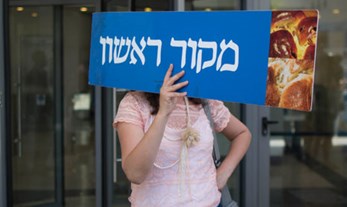
IDI: Advocates of Diversity and Transparency in the Media
Written By: Dr. Tehilla Shwartz Altshuler
In a fiery op-ed, Dr. Tehilla Shwartz Altshuler responds to charges of bias and lays out IDI's pro-active agenda in favor of media diversity and transparency and its efforts to save the <em>Makor Rishon</em> newspaper.

The Leading Candidate for President: "I Don't Know"
Written By: Mr. Chanan Cohen
Two months before the elections for president of Israel, who does the Israeli public see as the most suitable candidate for the job? Find out in this mini-survey from IDI's Guttman Center.

Israeli Public Opinion on Reducing Funding to Organizations that Mark Independence Day as the "Nakba"
Written By: Mr. Chanan Cohen
What do Jews in Israel think about the law mandating the reduction of government funds to institutions that mark Israel Independence Day as a day of mourning for the Palestinian "Nakba"? Find out in this mini-survey conducted by IDI's Guttman Center.

Celebrating Independence: The Vision of Professor Reuven Feuerstein
Written By: Benjamin (Benny) Lau
As Israel prepares to celebrate its independence, Rabbi Dr. Benjamin Lau and Ms. Shira Ruderman remind us of the need to bring people with disabilities into the circle of those who celebrate independence, drawing on the legacy of the late Prof. Reuven Feuerstein in this call for integration.

Public Opinion: Is Israel Independence Day a Holiday?
Written By: Mr. Chanan Cohen
Do Jewish and Arab citizens of Israel see Yom Ha'atzmaut as a holiday? Do perceptions among Jews vary depending upon level of religiosity or position on the right-left political spectrum? Find out in this Mini-Survey from IDI's Guttman Center.

Holocaust Studies for Preschoolers: Another Missed Educational Opportunity?
Written By: Dr. Arye Carmon
In a <em>Times of Israel</em> op-ed, Dr. Arye Carmon advocates a new approach to educating Israeli school children about the Holocaust, which will humanize both the victims and the perpetrators.

The Presidency in Israel as a Unique Challenge
Written By: Dan Shechtman
An article by Nobel Prize laureate Prof. Dan Shechtman, which was written as part of an IDI project in which the candidates for President of Israel share their views on the presidency and discuss what they would bring to the job.

Reinventing the Chief Rabbinate
Written By: Ayelet Libson
In an article in <em>The Jewish Week</em>, Ms. Ayelet Libson of IDI's Human Rights and Judaism project questions the role of the Israeli Chief Rabbinate and offers her view of what it could be.
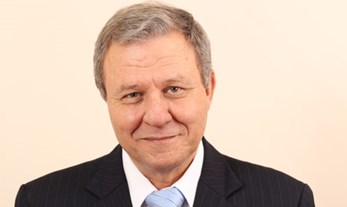
A Socially-Oriented President
Written By: Meir Sheetrit
MK Meir Sheetrit presents his views on the institution of the Israeli president and describes what he would bring to the job, in the first of a series of articles by the presidential candidates of 2014.

Integrating the Ultra-Orthodox
Written By: Andrew Friedman
To facilitate the entry of haredim into academia and the workforce, the state and private industry have invested hundreds of millions of shekels in recent years to create ultra-Orthodox frameworks to support individuals who are looking for academic education and employment while also remaining loyal to their cultural mores. As a result, nearly 80 percent of ultra-Orthodox women are now employed, on par with secular Jewish Israeli women.

The Struggle against Government Corruption
Written By: Prof. Mordechai Kremnitzer
In an op-ed in <em>Haaretz</em>, Prof. Mordechai Kremnitzer discusses government corruption in Israel and the implications of the Holyland verdict for deterring such corruption in the future.

The Lessons of Passover: We are the Other
Written By: Prof. Yedidia Z. Stern
Prof. Yedidia Z. Stern asserts that if we see ourselves as "other" and identify with the stranger, the poor, and people with disabilities, historic redemption of our ancestors from Egypt will be an ongoing redemption for our generation.

Only a Constitution will Ensure Good Governance in Israel
Written By: Dr. Amir Fuchs
IDI researcher Attorney Amir Fuchs asserts that the only way for Israel to ensure good governance is by adopting a constitution.

Nothing is Known Yet: Public Opinion on the Israeli Presidential Race
Written By: Mr. Chanan Cohen
Although the presidential race is heating up, the public does not seem to be particularly interested in it. What do Israeli citizens know about the race? Who is their candidate of choice? Find out in this mini-survey by the Guttman Center for Surveys.

The Presidential Elections: A Political Race for a Ceremonial Position?
Written By: Prof. Ofer Kenig
As Israel approaches the election of its 10th president, Dr. Ofer Kenig surveys the results of past presidential elections and asserts that although the role of the Israeli president is largely ceremonial, the race for the position is partisan and political.
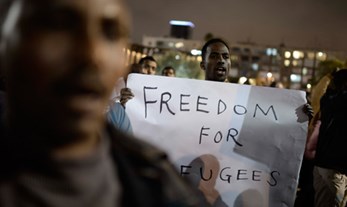
The Prevention of Infiltration Act in the Supreme Court: Round Two
Written By: Prof. Reuven (Ruvi) Ziegler
IDI researcher Dr. Reuven (Ruvi) Ziegler explains why he believes the Supreme Court should overturn Amendment No. 4 of the Prevention of Infiltration Act just as it invalidated its predecessor.

Basic Law: Referendum—Changing the Rules of the Game of Israeli Democracy
Written By: Dr. Dana Blander
Dr. Dana Blander draws on the findings of Israeli public opinion polls and explores some of the ramifications of the new Basic Law: Referendum, a law that establishes a system in which every citizen is entitled to participate in historic decisions on withdrawal from territory.
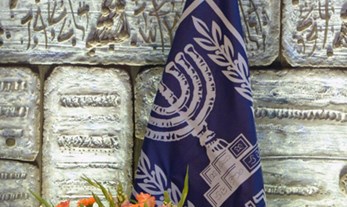
The Israeli Presidency: Unnecessary Institution or Vital Symbol?
Written By: Dr. Dana Blander
As the 2014 presidential election draws near, once again there have been calls to do away with the institution of the presidency. Is the President of Israel an unnecessary position or a vital symbol? IDI researcher Dr. Dana Blander analyzes the two sides of this question.

